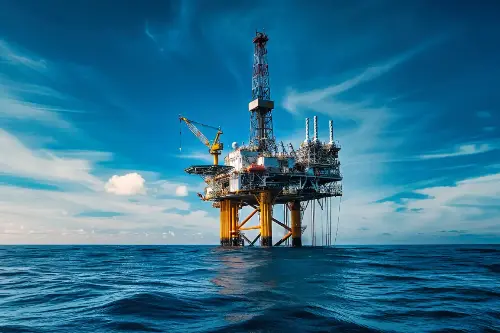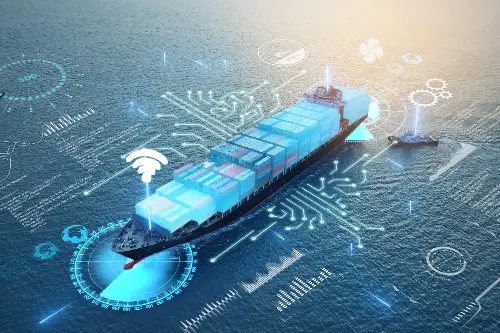The vast blue waters that make up more than 70% of our planet's surface are not merely for contemplation or the sustenance of marine life. Delving deeper into the history, the oceans have served as pathways for trade, exploration, and cultural exchanges. Today, they are seen as a critical component of the global economy, a potential goldmine of sustainable resources and economic opportunity – welcome to the world of the blue economy.

Historical Tides of the Blue Economy
Traversing through history, the blue economy's roots can be traced back to ancient civilisations that relied on the sea for food, transportation, and trade. The Phoenicians, the Vikings, and the great Ming Dynasty fleets navigated the oceans to explore and exchange commodities. In time, maritime trade routes became the arteries of global trade, a concept that burgeoned during the age of sail and beyond, paving the way for the modern shipping industry.
Advances in oceanic technology through the ages, from the astrolabe to GPS navigation, have transformed human interaction with the sea. Today, deep-sea exploration unveils treasures not only in the form of mineral resources but also pharmaceuticals and biotechnology innovations. We can appreciate the groundwork laid by history as we harness the vast potential of the oceans in a more sustainable manner.
Current Waves of Innovation and Sustainability
The contemporary interpretation of the blue economy includes an assortment of economic activities related to the ocean, such as fishing, maritime transport, tourism, and renewable energy. Unlike traditional maritime industries, the blue economy emphasises sustainability, acknowledging the ocean's finite resources and the imperative to protect and manage them responsibly.
Renewable ocean energy is one such promising area, with wind, wave, and tidal energy increasingly contributing to global energy supply. This sustainable turnaround is not just a nod to environmental preservation but also a significant economic driver, with the sector projected to grow substantially.

The Aquatic Food Frontier
When it comes to sustenance, the blue economy offers more than just the catch of the day. Aquaculture is undergoing a transformation, moving towards more environmentally friendly practices that mitigate overfishing and provide a consistent supply of seafood. Furthermore, research into marine biotechnology is unlocking new food sources like algae-based proteins, offering an innovative solution to address global food security.
Marine bioproducts are also redefining numerous industries, from agriculture with biofertilisers to cosmetics with marine-collagen. The integration of these products into various markets illustrates the versatility and commercial viability of the blue economy.
Navigating Uncharted Waters: Policy and Ocean Governance
For the blue economy to achieve its potential, critical governance structures need to be in place. International laws like the United Nations Convention on the Law of the Sea (UNCLOS) lay down maritime boundaries and resource rights, setting a framework within which economies operate.
Regions around the globe are formulating their own blue economy strategies. The European Union, for instance, has a dedicated integrated maritime policy, aligning blue economy pillars with environmental standards. Nations rich in coastlines, like Australia, Indonesia, and many Small Island Developing States, continue to create their own tailored blue economy plans, recognising their unique marine assets and the need for sustainable management.
Riding the Next Wave: The Future of the Blue Economy
Investment into the blue economy reflects a recognition of its potential to bolster economic growth while preserving the planet's most precious resource. The impact investment in sustainable ocean ventures is ramping up, with funds and venture capitalists seeking to back projects that align profit motives with environmental stewardship.
Digital advancements like AI and big data analytics are optimising maritime logistics, enhancing the tracking of fish stocks for sustainable harvest, and even policing illegal fishing through satellite surveillance. This wave of technological innovation spells a more productive, transparent, and sustainable blue economy, safeguarding its potential for generations to come.

Envisioning a Sustainable and Prosperous Blue Horizon
The blue economy presents a promising meld of old-world resourcefulness and new-world innovation. The transformation of oceanic industries to uphold sustainability is an ongoing journey that requires collaboration, investment, and a commitment to preserving the marine environment. The blue economy is not without its challenges, but steering through these waters with wisdom and foresight can unlock an era of sustainable prosperity. The oceans once connected diverse civilisations; now, they hold the key to a shared, sustainable future, heralding an age where economic growth and ecological stewardship sail in tandem. In harnessing the blue economy, we uncover a treasure not buried beneath the sea, but residing in the balance we strike with nature's indomitable spirit.
